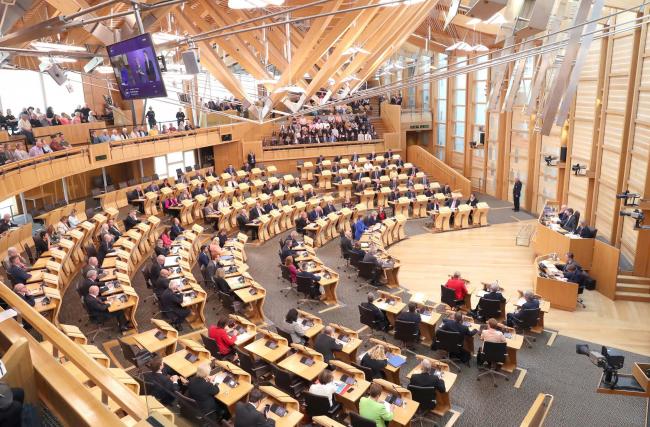
Chloe Campbell,
Policy and Parliamentary Officer,
The Poverty Alliance
We can build a fairer, greener Scotland, free from the injustice of poverty.
But for that to happen, our political leaders must make a fundamental change in the way they look at our society.
For far too long, we’ve been suffering the effects of failed, unjust economic policies that leave too many people on low wages, inadequate incomes, and insecure work. And to make matters worse, the public foundations that we all rely on have been stripped of investment: that’s bad for everyone, but especially for those who need stability and support to build a life beyond poverty.
We can see the results across the country – from rising child homelessness to deepening poverty, and from potholes to cuts to vital health and social care.
The next Scottish Budget can mark a turning point. The last UK budget will lead to an additional £3.4 billion coming to Scotland, and that money must be used to support bold action to reduce poverty.
And MSPs must support the use of better taxes to support better budgets for a better future. We desperately need to use Scotland’s powers over taxation and investment to unlock our country’s shared wealth and invest in the public good.
We know that the public finances are tight – but every time we hear a politician talk about tight budgets, we should remember that the biggest cause is previous failure by political leaders to put our nation’s wealth to good use. There is no shortage of wealth in this country: since the 1960s our economy has tripled in size in real terms.
But we realise that no government can do everything we would like straight away. So we have created a list of priorities that we have sent to every MSP. Each year, our Challenge Poverty Week campaign policy asks call for change to address the root causes of poverty – and these asks remain our central calls for the 2025-26 Scottish Budget.
If MSPs follow our calls, they will bring us much closer to a place where we all have: a safe and secure home; access to affordable and reliable public transport; an adequate income to live a decent and dignified life; food security; and access to help and support from community and voluntary organisations that are well resourced through fair funding.
Here are just some of the budget measures MSPs can take now:
- Adequately funding the delivery of new social homes through the Affordable Housing Supply Programme, and allocating funding to ensure that existing social homes are well-maintained and suitably adapted to meet people’s needs;
- Ensuring transport funding is directed towards building networks which meet the needs of local people. That includes expanding concessionary travel to under 25s, those receiving low-incomes and disability benefits, unpaid carers and asylum seekers, as well as supporting moves towards public control and ownership of our bus networks;
- Allocating sufficient funding to deliver the roadmap to the Minimum Income Guarantee, including investment in social care, expansion of the funded childcare entitlement to low-income households, and further increases in the Scottish Child Payment;
- Delivering universal free school breakfast and lunch provision to all pupils in Scotland; and
- Providing funding to community and voluntary organisations that follows SCVO’s definition of fair funding and takes account of the increase in employer National Insurance contributions.
More than one in five people in Scotland (21%) - rising to one in four children - have their life chances restricted by the preventable injustice of poverty in wealthy Scotland. The risk of poverty continues to be particularly high for certain groups including disabled people, Black and minority ethnic people, and single parents - over 90% of whom are women.
If the Scottish Government are to be true to their core policy objective of eradicating child poverty, they must choose to meet these challenging fiscal and social contexts with decisive action, taking a different path to ensure investment in people and our critical public services. This is not just essential for people’s well-being, but is also critical for building a strong economy.


Enter your email address to receive regular e-updates about our work. If at any time you want to stop receiving these, simply contact us. We’ll keep your details safe and won’t share them with any other organisations for their marketing purposes. For full details see our Privacy Policy.